An Interview With Spencer Nielsen, Teacher of the Permaculture Design Certification Course
It was a brisk spring morning during an Ayurvedic Agroforestry course taught by Spencer Nielsen at the Sivananda Yoga Farm. A dozen or so students huddled around the greenhouse, which bolstered beds full of large chard and kale greens.
Spencer had a station set up with a variety of native and medicinal herb seeds sprawled on a table. Next to the table rested a wheelbarrow full of a dark, rich looking compost. Spencer explained to the students that “In the biodynamic tradition, essentially what they use to start seeds is plant-based compost. They mix in various materials such as soil, vermiculite, and popped mica, which adds a little bit of minerals and retains moisture. They also add waste products such used coconut husks to add organic matter.”
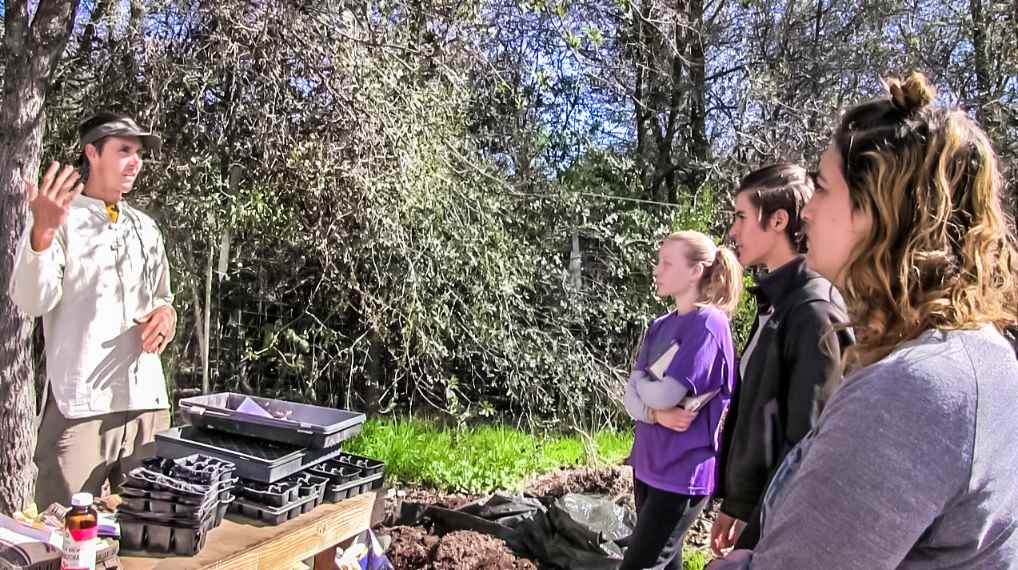
Spencer was very knowledgeable on the subject, and guided the class in preparing a nutrient rich preparation for medicinal and native herb starts. The students continued to mix compost and prepare several seeds for planting, such as Holy Basil, Calendula, and California Poppy. The sprouted seeds eventually that ended up growing in the greenhouse and some were transplanted into the fruit and nut orchards.
Permaculture Design Course
After the course we had a chance to catch up with Spencer to ask about the upcoming Permaculture Design Certification (PDC) course. If you haven’t heard of a PDC before, it’s a comprehensive 72-hour certification that trains one to be an ecological landscaper.
Like a Yoga Teacher Training, a PDC can be very life transforming. It completely changes the way one observes and interacts with the world, such as how to design one’s life based on patterns in nature. It teaches the student practical skills and knowledge on how to regenerate the earth, build community, and grow food. It is a great opportunity for someone who wants to make a difference in the world in the realms of sustainability or social and environmental action.
Check out a video we made from segments of our brief interview with Spencer below, as well as a full transcribed version underneath. Om Namah Sivaya!
Can you tell us more about the PDC you are teaching?
In 2019 we’re going to be teacher a two-week permaculture design course. One week will be in April and the second week will be in June. Being offered here at the Sivananda Yoga Farm will be a really rare opportunity to dive deep into classical Yoga and permaculture at the same time. There’s a lot of permaculture courses that will share yoga practice, but in this course we will have the opportunity to participate in a full yogic lifestyle. The regular rhythm at the Ashram includes Satsang, Yoga practice, and yogic foods. Between those, we will be mixing in permaculture content in the classroom and on the farm. The farm includes orchards, organic vegetable garden, and some other pieces that have existed at the Yoga farm for quite some time, such as a greenhouse system and a photovoltaic system (solar panels).
Being offered here at the Sivananda Yoga Farm will be a really rare opportunity to dive deep into classical Yoga and permaculture at the same time.
What makes the Permaculture Design Course at the Yoga Farm special or unique?
Because of the context at the Yoga Farm, as well as my own passions, we will be integrating teachings of Yoga and Ayurveda into the course content. We will explore various systems through elemental perspectives of Ayurveda: Earth, Water, Fire, Air and Ether. We will look at how the teachings of Ayurveda fit in to permaculture, and how they are appropriate to individuals’ constitutions as well as landscapes. We will also touch on Yoga philosophy as well as sister sciences of Yoga such as Vastu (which is like a Vedic version of Feng Shui) and Jyotish (Vedic Astrology) in order to deepen a whole systems perspective.
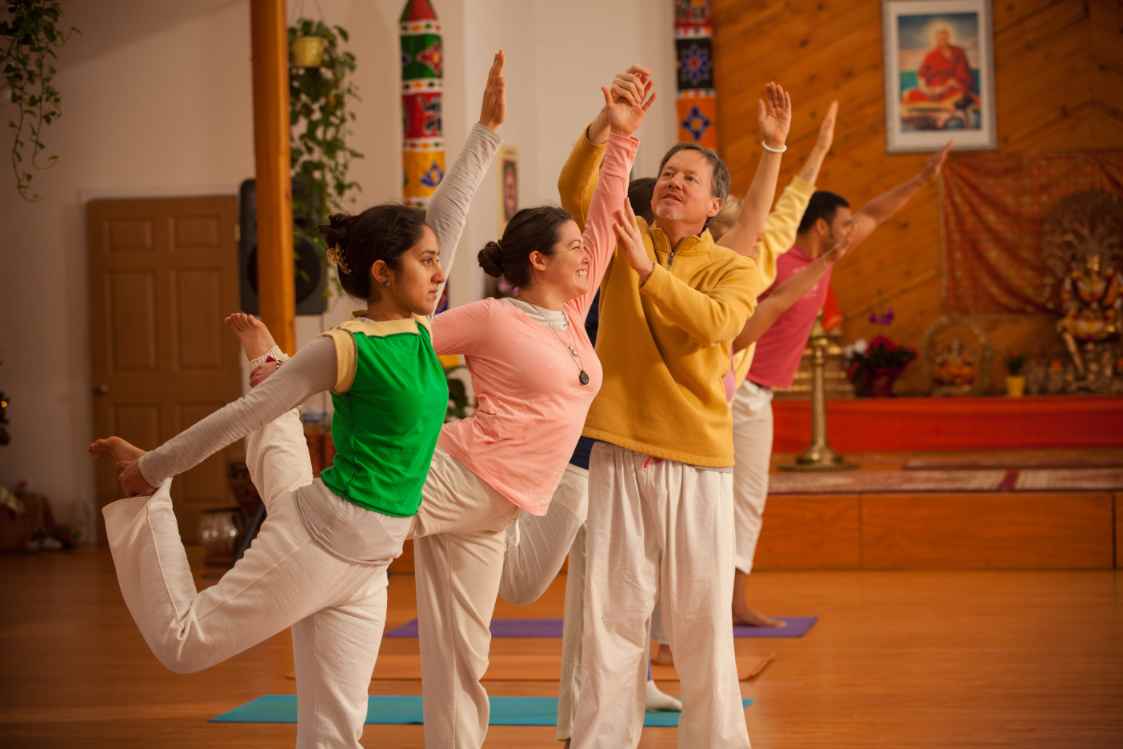
Daily Yoga Classes are an integral part of our Permaculture Design Course.
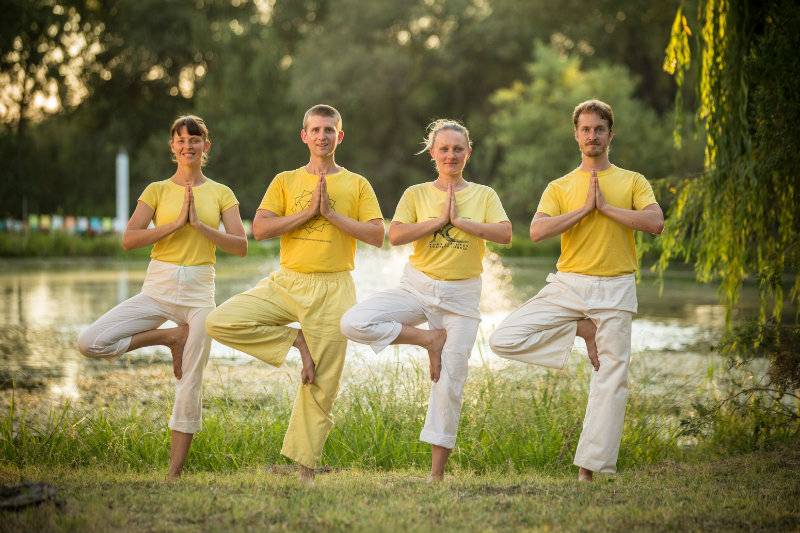
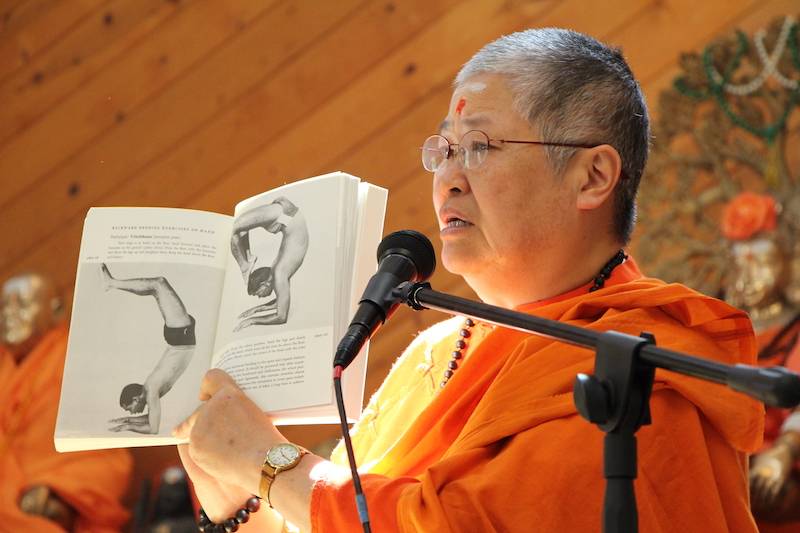
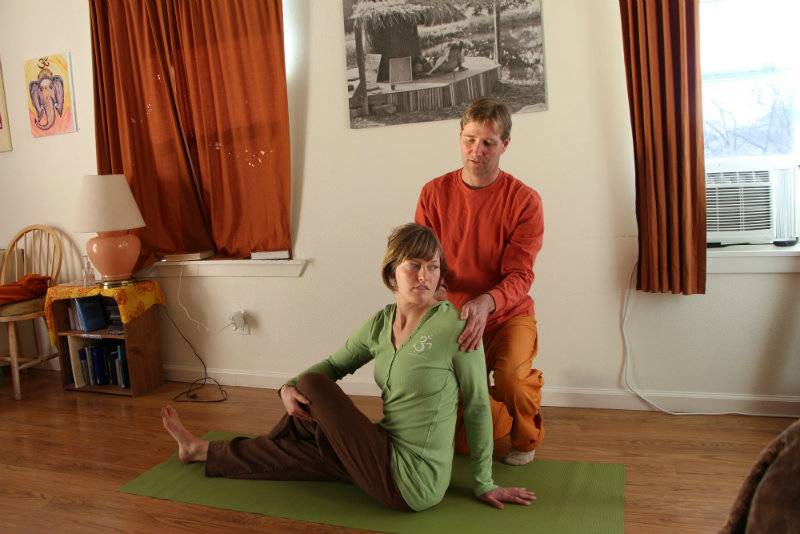


0 Comments